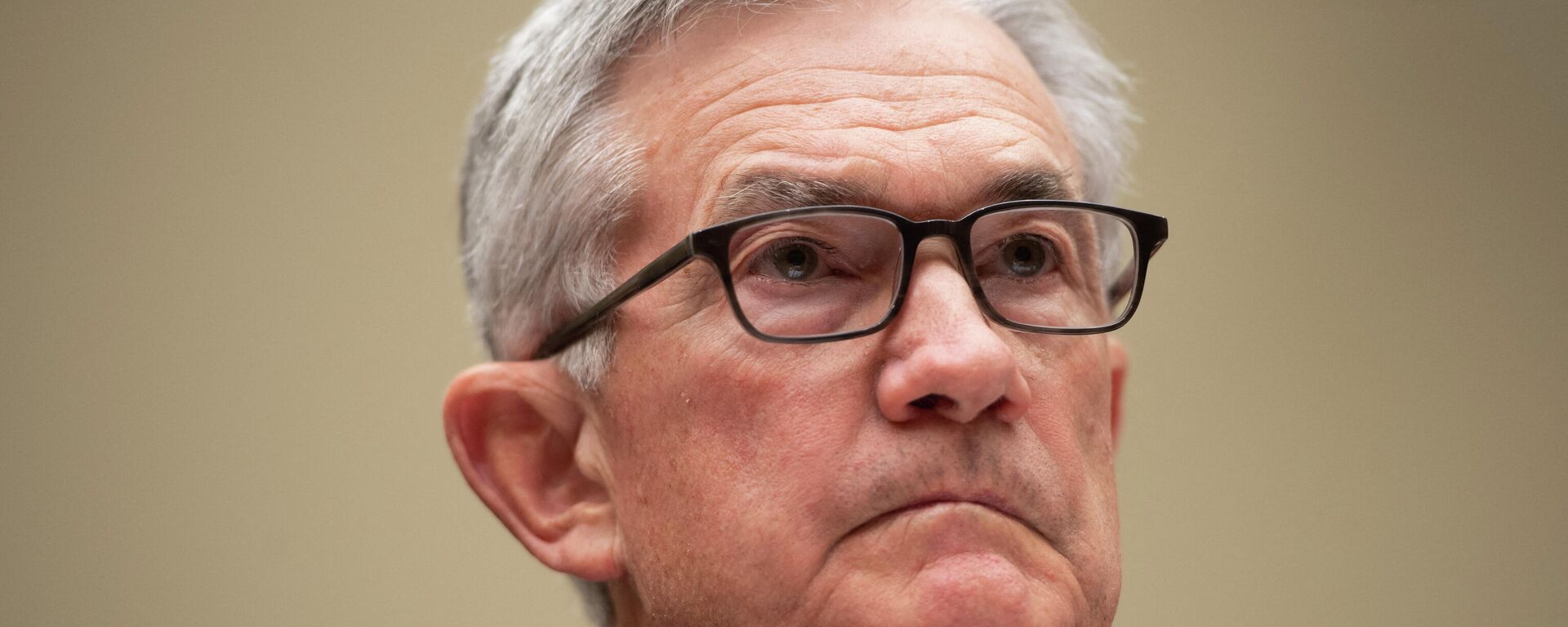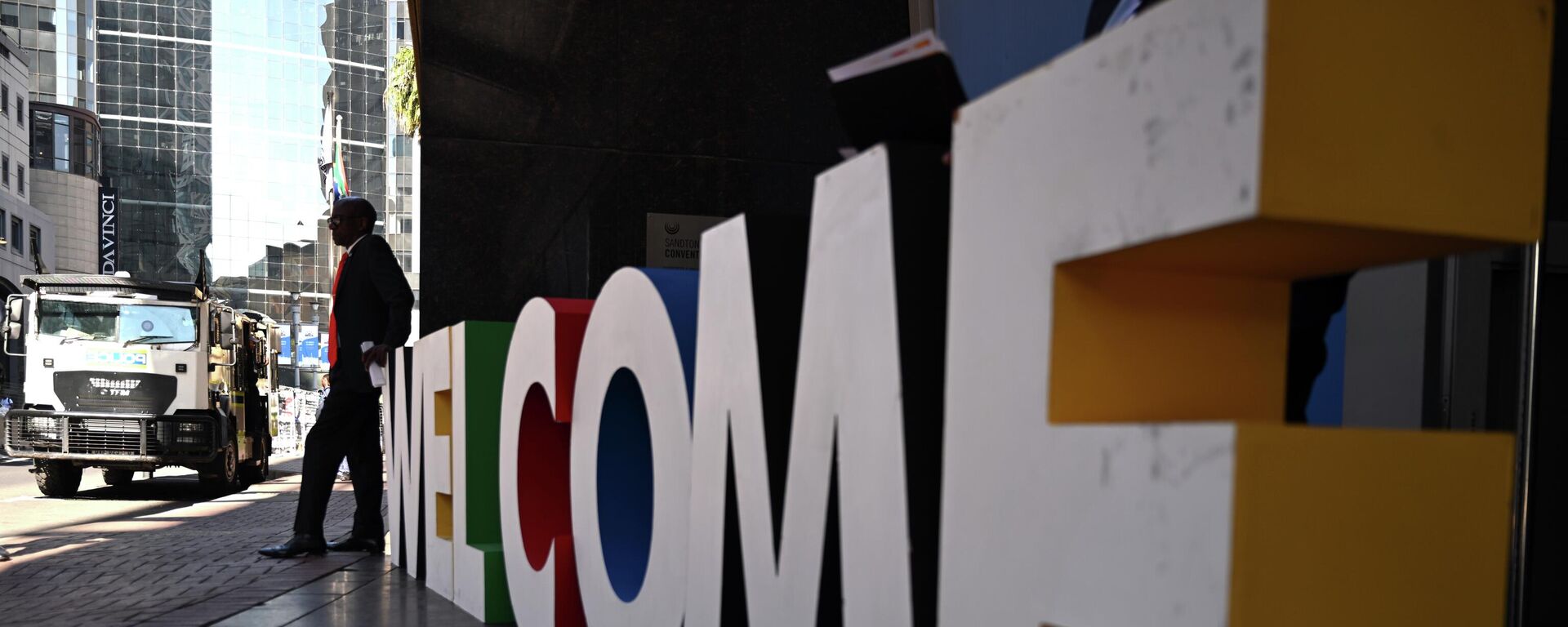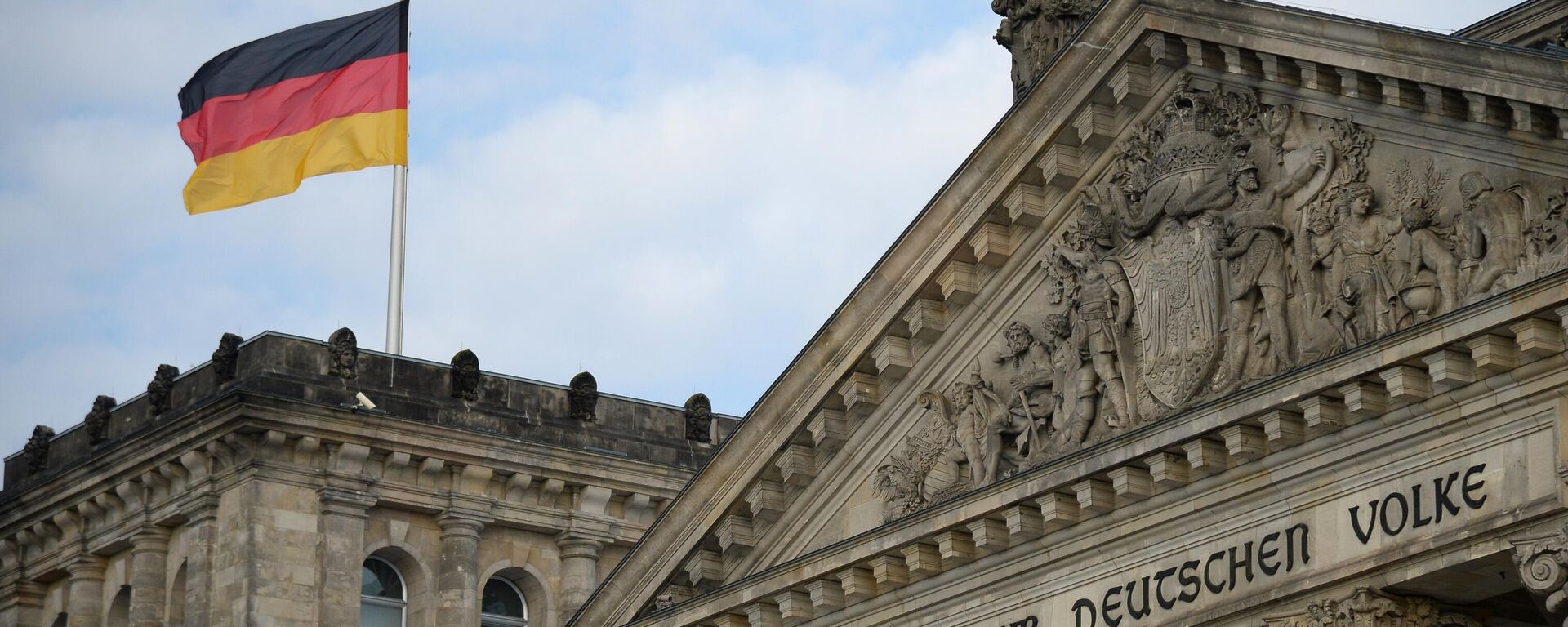https://sputnikglobe.com/20230826/eus-top-banker-lagarde-predicts-long-term-downturn-insists-german-economy-not-broken-1112912201.html
EU Top Banker Lagarde Predicts Long-Term Downturn, Insists German Economy 'Not Broken'
EU Top Banker Lagarde Predicts Long-Term Downturn, Insists German Economy 'Not Broken'
Sputnik International
Countries around the world were thrust into a period of dramatic economic turbulence last year after the long-running crisis in the Donbass escalated into a full-on NATO-Russia proxy war in Ukraine, with Europe bearing the brunt of the burden and falling into recession after voluntarily stripping themselves of access to Russian energy.
2023-08-26T16:34+0000
2023-08-26T16:34+0000
2023-08-26T17:01+0000
economy
germany
christine lagarde
jerome powell
european central bank
the european central bank (ecb)
us federal reserve
international monetary fund
https://cdn1.img.sputnikglobe.com/img/07e7/08/1a/1112911848_0:0:2875:1617_1920x0_80_0_0_29716cedfdcaee040a425477519a3750.jpg
European Central Bank President Christine Lagarde expects the economic downturn facing most Western economies to continue, saying the world may be entering "an age of shifts in economic relationships and breaks in established regularities.""If we are in a new age, past regularities may no longer be a good guide for how the economy works," Lagarde said, speaking at a central bank symposium in Jackson Hole, Wyoming, also attended by US Federal Reserve Chairman Jerome Powell, on Friday."If we also face shocks that are larger and more common – like energy and geopolitical shocks – we could see firms passing on cost increases more consistently," the banker said. "If global supply does become less elastic, including in the labor market, and global competition is reduced, we should expect prices to take on a greater role in adjustment," she added.“There is no pre-existing playbook for the situation we are facing today – and so our task is to draw up a new one,” the banker, who previously served as the head of the International Monetary Fund, said.The ECB has joined the Fed in raising interest rates repeatedly over the past year, with the base rate jumping nine times from negative 0.5 percent to 3.75 percent (but still below the current US base rate of 5.25-5.5 percent).German Economy 'Not Broken'She admitted, however, that Europe’s dependence on Russian energy – which the EU moved to decouple itself from in an attempt to “punish” Moscow for its Ukrainian special operation last year, had created “unique challenges” for the ECB in keeping price pressures down.The Eurozone fell into a technical recession in June, with the industrialized and export-dependent German economy hit particularly hard by the loss of plentiful and cheap Russian natural gas (which has been estimated to be up to 40 percent cheaper than US LNG).On Friday, fresh data from Germany's Federal Statistical Office confirmed that GDP growth in the second quarter of 2023 had dropped by 0.6 percent (price adjusted) compared to the same period a year earlier. The same day, a major German business confidence ranking based on the feedback of 9,000 businesses in the manufacturing, services, trade, and construction sectors revealed that companies were dissatisfied with their current situation and have a negative outlook for the coming six-month period.Moscow warned back in May of 2022, when the push by Europe to dump Russian energy was just getting underway, that the "suicidal" decision to decouple from Russian oil and gas would undermine the European Union’s economic competitiveness relative to other major industrial economies.
https://sputnikglobe.com/20230825/federal-reserve-to-keep-hiking-interest-rates-as-us-economy-not-cooling---chairman-1112893650.html
https://sputnikglobe.com/20230826/expanded-brics-has-big-economic-prospects-despite-possible-political-disagreements-1112902355.html
https://sputnikglobe.com/20230824/whats-behind-decline-of-germany-1112852729.html
germany
Sputnik International
feedback@sputniknews.com
+74956456601
MIA „Rossiya Segodnya“
2023
News
en_EN
Sputnik International
feedback@sputniknews.com
+74956456601
MIA „Rossiya Segodnya“
Sputnik International
feedback@sputniknews.com
+74956456601
MIA „Rossiya Segodnya“
european central bank, christine lagarde, economy, supply chains, interest rates, inflation, shocks, prices, predictions, gloom
european central bank, christine lagarde, economy, supply chains, interest rates, inflation, shocks, prices, predictions, gloom
EU Top Banker Lagarde Predicts Long-Term Downturn, Insists German Economy 'Not Broken'
16:34 GMT 26.08.2023 (Updated: 17:01 GMT 26.08.2023) Countries around the world were thrust into a period of dramatic economic turbulence last year after the long-running crisis in Donbass escalated into a full-on NATO-Russia proxy war in Ukraine, with Europe bearing the brunt of the burden and falling into recession after voluntarily stripping themselves of access to Russian energy.
European Central Bank President Christine Lagarde expects the economic downturn facing most Western economies to continue, saying the world may be entering "an age of shifts in economic relationships and breaks in established regularities."
"If we are in a new age, past regularities may no longer be a good guide for how the economy works," Lagarde said, speaking at a central bank symposium in Jackson Hole, Wyoming, also attended by US Federal Reserve Chairman Jerome Powell, on Friday.
“We…need to be open to the possibility that some of these changes could be longer-lasting,” Lagarde added, citing a “deepening geopolitical divide and a global economy that is fragmenting into competing blocs.”
"If we also face shocks that are larger and more common – like energy and geopolitical shocks – we could see firms passing on cost increases more consistently," the banker said. "If global supply does become less elastic, including in the labor market, and global competition is reduced, we should expect prices to take on a greater role in adjustment," she added.
“Central banks have responded by tightening monetary policy and, while progress is being made, the fight against inflation is not yet won,” Lagarde said, echoing Powell’s sentiments that interest rate hikes will continue to be made to try to get a handle on inflation. In the case of Europe, she said, the ECB will keep setting rates “at sufficiently restrictive levels” to try to get Eurozone inflation down to two percent.

25 August 2023, 17:21 GMT
“There is no pre-existing playbook for the situation we are facing today – and so our task is to draw up a new one,” the banker, who previously served as the head of the International Monetary Fund, said.
The ECB has joined the Fed in raising interest rates repeatedly over the past year, with the base rate jumping nine times from negative 0.5 percent to 3.75 percent (but still below the current US base rate of 5.25-5.5 percent).
While higher interest rates are traditionally associated with lowering inflation, they are also known to cool economic growth, since households and businesses are more reluctant to borrow money at higher rates. They can also pose a threat to the stability of the banking system, as the US found out earlier this year, after three major corporate banks went bust and almost dragged other US and European banks with them after being stuck holding the bag on low interest US Treasuries.

26 August 2023, 03:54 GMT
German Economy 'Not Broken'
Lagarde also commented on the state of Europe’s largest economy, Germany, which has been in a recession for three straight quarters, insisting that the traditional industrial powerhouse’s economy is "not broken" and that the nation’s leaders are "fixing it," including by building new liquefied natural gas facilities to replace Russian gas.
She admitted, however, that Europe’s dependence on Russian energy – which the EU moved to decouple itself from in an attempt to “punish” Moscow for its Ukrainian special operation last year, had created “unique challenges” for the ECB in keeping price pressures down.
The Eurozone fell into a technical recession in June, with the industrialized and export-dependent German economy
hit particularly hard by the loss of plentiful and cheap Russian natural gas (which has been estimated to be up to 40 percent cheaper than US LNG).
On Friday, fresh data from Germany's Federal Statistical Office confirmed that GDP growth in the second quarter of 2023 had dropped by 0.6 percent (price adjusted) compared to the same period a year earlier. The same day, a major German business confidence ranking based on the feedback of 9,000 businesses in the manufacturing, services, trade, and construction sectors revealed that companies were dissatisfied with their current situation and
have a negative outlook for the coming six-month period.

24 August 2023, 14:02 GMT
Moscow warned back in May of 2022, when the push by
Europe to dump Russian energy was just getting underway, that the
"suicidal" decision to decouple from Russian oil and gas would undermine the European Union’s economic competitiveness relative to other major industrial economies.





